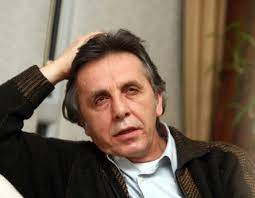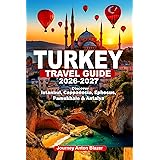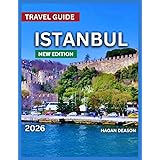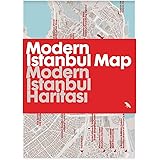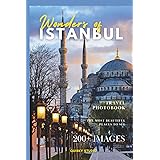by Erol Göka
Feb 28, 2019 | Articles
Great poets are remembered with the lines they have engraved in our minds. Some of us keep saying this line, some of us this line. Great thinkers, with the nicks they made in our minds and the contributions they made to our world of ideas. I read his books with the enthusiasm of learning from an intellectual who is connected to his nation, to understand deeply and to explain in an understandable way. He had an idea about the Turkish identity that I could never be indifferent to in terms of our interests, and it affected me with the intensity that I had to either accept or oppose. I would like to share with you this idea that impressed me the most.
Great erudition reveals itself mostly in the questions it tries to answer. The rest is easy, if there is a question, there is an answer… Karpat Hodja, who investigates the process of millions of Muslims taking refuge in today’s Turkey, in the migration waves that started with the Vienna Defeat and gained momentum in the last periods of the Ottoman Empire and continued until today, asks the following question. “What could be the force that drew these people, who were divided into so many different language groups and who were from regions so different from each other in terms of climate and geography as well as social structure, to the Ottoman state and today’s Republic of Turkey?” And he adds: “Beyond that, the more important question is: What makes these people so divided into different ethnic and linguistic groups live together?What was and is the power that provides agreement and solidarity (solidarity) between them? According to him, although the answer to this question seems indisputably Muslim at first glance, it is insufficient and misleading to try to explain this attraction only with the “religion” factor. If that were the case, Muslims living in many parts of Asia and Africa and who did not establish their state in the 19th century would have had to seek refuge in the Ottoman state. Apart from that, separatist tendencies were felt very strongly in places with actually quite large local autonomy, especially in some Arabic-speaking regions. “Despite the fact that Islam gives these people a common identity, the real force that enables them to live together isAs the subjects of the Ottoman state, they adopt the Ottoman political culture and share a common legal order and the common values and attitudes created by this order. Common family law takes the first place in the emergence of this order… Having a common family structure and law facilitated the integration of immigrants and the people living in Anatolia. Indeed, a common understanding of family allowed a Bosnian to marry a Turk, a Circassian to a Kurd, a Cretan (many of whom are not Roma) to a Laz, and a Pomak to an Albanian. The children born have not forgotten their father’s origin; however, the first generation saw itself as a Muslim-Ottoman, the second as a Muslim-Turk, and finally the third as a Turk… Common religion and social institutions,The common Ottoman political culture and Ottoman authority and the concentration of this authority in a single center (Istanbul) and its isolation in the person of the sultan gave Muslims living in the Caucasus, Rumelia and Anatolia a unique ethnic identity. The name of this identity is Ottomanism and Turkishness… This culture, which emerged in six centuries, has survived to the present day even after the Ottoman state disappeared. It is this common attitude, behavior and psychological structure that binds people together in Turkey and distinguishes them from other societies, which we call Turkishness.”It is this common attitude, behavior and psychological structure that connects people in Turkey and separates them from other societies, which we call Turkishness.”It is this common attitude, behavior and psychological structure that binds people together in Turkey and distinguishes them from other societies, which we call Turkishness.”
Karpat Hodja adds to his analysis, which makes the transition between Islam, Ottomanism and Turkishness very easy, that the name “Turk” historically means “Muslim” in Rumelia and Europe, and that Turkish has been a “lingua franca” since the Ottoman period. “Turkish, as well as being a tool of modernization, has been the spokesperson of the reactions created by socio-political changes, that is, the external and internal identities of the changing society… The ‘Turk’ here is neither a Central Asian ‘Turk’ nor a peasant ‘Turk’ who was despised in the Ottoman period until the 1830s. Crimeans, Caucasians, Balkans, Kurds, Laz, etc., a new Turk born from the fusion of migrations, socio-economic and cultural changes, that is, today’s Turks. It is the person who emerged from the mixture of those who migrated from the village to the city.”
According to Karpat Hodja, the abolition of the Türk Ocakları, which defended “hars” as the basic culture, and the establishment of “Halk Evleri” in 1932, removed the understanding of nation from the axis of history-culture and disrupted the continuity of Turkish identity. According to him, this road should not have been taken in 1932. “Actually, the work to be done is to evaluate the impact of migrations correctly, II. Abdulhamid’s modernization and II. It is to evaluate the democratization processes opened by the Constitutional Monarchy in a broad socio-cultural and economic framework, and to explain that the national and borderline Turkey brought by the National Struggle is the result of the developments before it.”
You do not have to defend these views. I was against it from the beginning, I criticized Hodja for not seeing the effects of late-modernization. But when I saw and got to know Kosovo, I understood better what he meant. Rest in peace.
http://www.erolgoka.net/turk-ocaklarindan-halk-evlerine/

